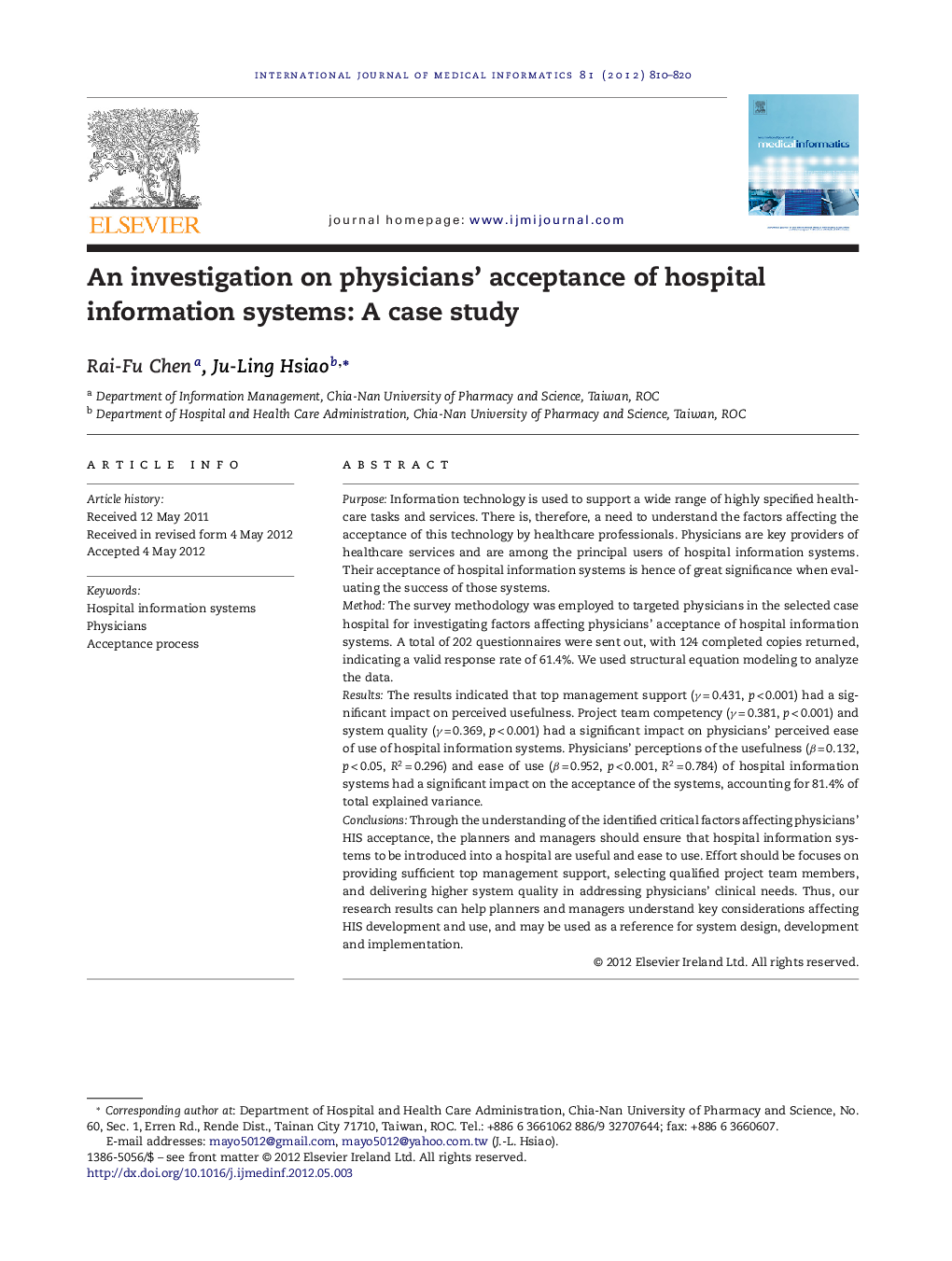| Article ID | Journal | Published Year | Pages | File Type |
|---|---|---|---|---|
| 516301 | International Journal of Medical Informatics | 2012 | 11 Pages |
PurposeInformation technology is used to support a wide range of highly specified healthcare tasks and services. There is, therefore, a need to understand the factors affecting the acceptance of this technology by healthcare professionals. Physicians are key providers of healthcare services and are among the principal users of hospital information systems. Their acceptance of hospital information systems is hence of great significance when evaluating the success of those systems.MethodThe survey methodology was employed to targeted physicians in the selected case hospital for investigating factors affecting physicians’ acceptance of hospital information systems. A total of 202 questionnaires were sent out, with 124 completed copies returned, indicating a valid response rate of 61.4%. We used structural equation modeling to analyze the data.ResultsThe results indicated that top management support (γ = 0.431, p < 0.001) had a significant impact on perceived usefulness. Project team competency (γ = 0.381, p < 0.001) and system quality (γ = 0.369, p < 0.001) had a significant impact on physicians’ perceived ease of use of hospital information systems. Physicians’ perceptions of the usefulness (β = 0.132, p < 0.05, R2 = 0.296) and ease of use (β = 0.952, p < 0.001, R2 = 0.784) of hospital information systems had a significant impact on the acceptance of the systems, accounting for 81.4% of total explained variance.ConclusionsThrough the understanding of the identified critical factors affecting physicians’ HIS acceptance, the planners and managers should ensure that hospital information systems to be introduced into a hospital are useful and ease to use. Effort should be focuses on providing sufficient top management support, selecting qualified project team members, and delivering higher system quality in addressing physicians’ clinical needs. Thus, our research results can help planners and managers understand key considerations affecting HIS development and use, and may be used as a reference for system design, development and implementation.
► Perceived usefulness and perceived ease of use influence physicians’ HIS acceptance. ► Perceived ease of use has a major impact on physicians’ acceptance of HIS. ► Top-management support is a major factor affecting perceived usefulness of HIS. ► System quality and project-team competency influence perceived ease of use of HIS.
